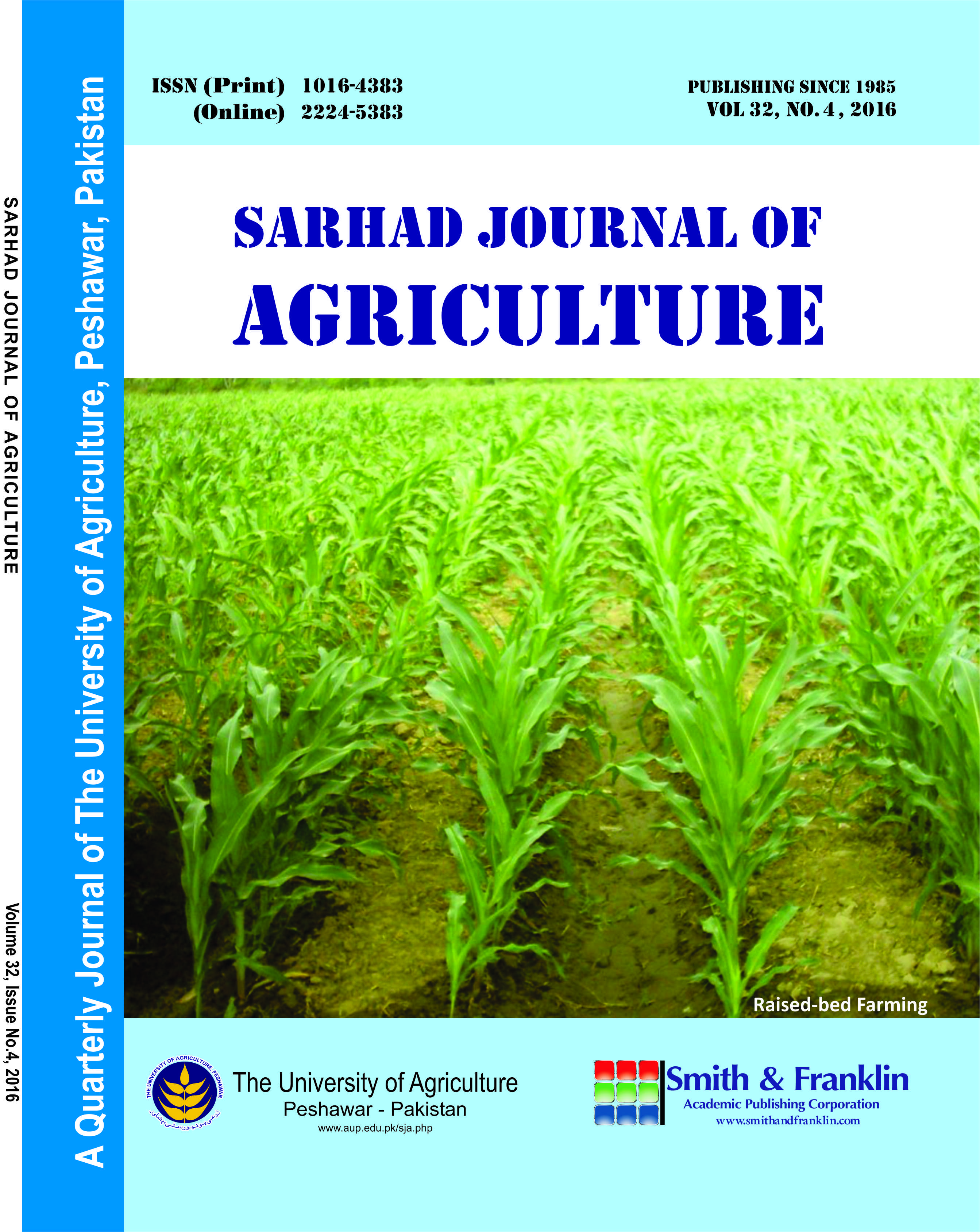Influence of Formal Mechanisms on Irrigation Water Distribution: A Farmer Centric Analysis in Pakistan
Influence of Formal Mechanisms on Irrigation Water Distribution: A Farmer Centric Analysis in Pakistan
Abdul Zahir1*, Asad Ullah1, Yonis Gulzar2*, Mohammad Shuaib Mir2, Abdus Salaam3 and Arjumand Bano Soomro2
ABSTRACT
This study investigates the formal influences on irrigation water distribution practices in central Khyber Pakhtunkhwa (KP), Pakistan, and its impacts on farmer satisfaction. A multistage stratified random sampling technique was used for interview schedule, and data collected from 466 farmers of districts i.e. (Malakand, Charsadda and Mardan). Chi-square and Kendall’s Tc tests were applied to analyze the relationship between the formal influences and farmer’s satisfaction with irrigation water distribution. Results showed significant positive associations between farmer’s satisfaction and other factors e.g. adherence to prescribed water shares (P = 0.000, Tc = 0.294), strict irrigation schedules (P = 0.000, Tc = 0.206), predetermined time schedules (P = 0.000, Tc = 0.347), lack of influence by large landlords (P = 0.020, Tc = 0.318), fair water redistribution during stress periods (P = 0.000, Tc = 0.511), the ability to lodge complaints (P = 0.000, Tc = 0.172), and prompt resolution of these complaints (P = 0.000, Tc = 0.112). Conversely, political influence over irrigation schedules had a negative impact on satisfaction (P = 0.012, Tc = -0.118). The study further revealed that the irrigation department of KP province emphasized on the technical distribution, however, it fails to address socio-economic and political inequities in the study districts of KP province. This research further recommended that policymakers may enhance the equality and fairness in irrigation water distribution, strengthen the complaint mechanism by making it more transparent and time-bound. It may also involve the farmers in the water distribution system to reduce the chance of inequality in irrigation water distribution.
To share on other social networks, click on any share button. What are these?








